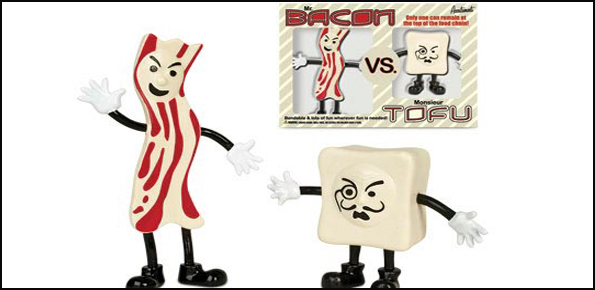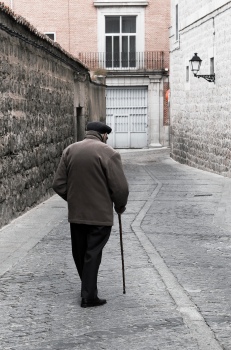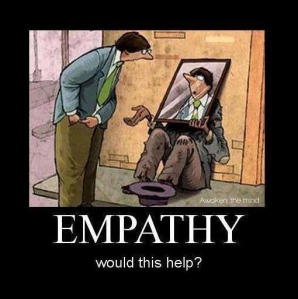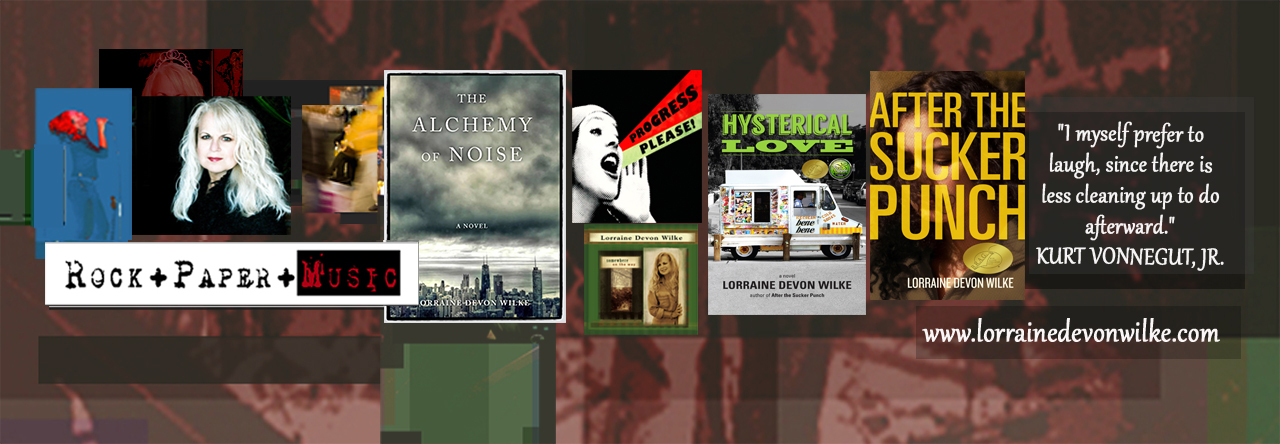
When I get up in the morning and sit down to my computer, I typically scroll through selected news sites to see what’s happening in the world before I start my work. Per my own advice, offered in Want to Feel Better, Really Better? Step Away From the News, I’m picky about my media sources and make sure to avoid most comment threads for the sake of my sanity. But still…
It’s impossible to completely block out the tone and tenor of our cultural view of each other – of “regular” people, of celebrities, of politicians, of… anyone. And the prevailing sentiment I see all around me – in the news, in comments and tweets, in Facebook threads, in blogs and shared stories, even simple conversation – is judgment. The unrelenting flow of criticism. Of condescension. Of arrogance. Of snide, sneering, dismissive, just sort of snitty characterizations of anyone and anything beyond ourselves, our particular groups; our own little worlds. It bothers me, kind of like the trash barge bothered Andie MacDowell’s character in Sex, Lies and Videotape, and like her, I don’t see any way to solve the problem of that floating debris. Except one.
Empathy.
I know… such a airy fairy, la la, positive-thinking concept. Would it help if I said what the world needs now is some fucking empathy?
However you say the word, it is, as mentioned in my piece on bullies, the antidote. To everything. To resentment, hate, crime, bigotry, trolling, abuse, violence, intolerance, passive-aggressiveness…. all of it. Think about that: one THING that could solve all the problems of the universe. And yet we humans, instead, spend our time circling our fierce fleets of wagons around the identities with which we align ourselves: political parties, religions, nationalities, ethnicities, countries, states, neighborhoods, clubs; even the way we eat (have you ever seen a vegan and bacon-lover go at it on Facebook??).

It’s absurd, really, the degree to which we create separation and the “us vs. them” mentality, but that impulse to divide and distance is at the heart of every single problem in the entire world and has been since the dawn of time. It’s only the most enlightened, the wisest, the most loving and spiritual, who’ve realized that we’re all of the same cloth; that we’re all here on this earth to do basically the same things: live, evolve, connect, contribute, and hopefully learn something of value before we pass off this mortal coil. And yet, despite that shared mission, we humans seem compelled to see our differences more than our most basic similarities. That impulse has gotten us into a lot of trouble over time, and it remains the single-most driving force behind the snarling, angry culture of today.
Now, let’s be clear: the reason I say “culture of today” (as opposed to any other time) is only because it’s the moment we’re in… and the one in which the ubiquity and reach of technology has made the minutia of every day life known to everyone worldwide, making us all aware of the dark turns of culture on a global scale. Certainly issues of empathy-lack were just as rampant when Vikings were slaying their conquests, the Brits were invading Africa, and Manifest Destiny was wiping out the Natives; we just weren’t hearing about it in minute-by-minute tweets (let’s face it: the “express” behind “pony” may have been a misnomer!). Nowadays, the sheer bombardment of seething examples drives the point home.
Empathy: The power to understand and enter into another person’s feelings. The willingness to walk in another’s shoes. The ability to imagine or experience the feelings, thoughts and attitudes of another. The sense of compassion derived from the Golden Rule of “do unto others as you’d have them do unto you.”
What would our world be if we actually had true empathy for each other?
Big themes include:
Race-hate and bigotry would be impossible, as we’d all understand that the color of skin, the ethnicity of one’s birth, have nothing whatsoever to do with the intrinsic value of a person.
Religious intolerance would be eradicated because we’d all be aware that while each of us has the right and freedom to believe as we choose, those personal beliefs cannot and must not be judged, imposed, or legislated upon anyone else.
Sexism and misogyny would be extinct, as men would recognize that gender has no bearing upon the worth, intellect, value or viability of another person.
Sexual violence and abuse would end because no one would find it acceptable to rape or assault another in service to compulsions for control or power.

Ageism and elder abuse would disappear, as we’d all realize that each and every one of us – if we’re lucky enough to live that long – will one day be the aged, and our ability to grasp and understand the continued desire of that community to contribute, participate and experience life would be inevitable.
Political vitriol and partisan bullying would be abolished, as each person involved would grasp why another feels as they do and, even if in disagreement, would allow true respect and decorum to govern how governing is implemented.
Gun control would be a desired conversation and goal for both the gun lover and the gun control advocate, because all parties would see the wisdom in making gun use saner and safer for everyone.
Mental health issues would get necessary attention and funding because people would be less inclined to dismiss and disparage, understanding it as an affliction that can affect anyone in any age, economic, ethnic and religious background.
Homophobia and intolerance would be banished because we’d all accept that humans come in many different varieties and each is deserving of the same rights, freedoms and respect.
But even in the smaller, more secondary arenas, true empathy would make a significant shift in cultural discourse:
Media users would acknowledge and show respect to those who’ve taken the time and done the work to learn something, compelling them to – rather than snark and troll as a matter of habit – share, discuss and maybe learn something themselves.
When it comes to the many stories of average people, fellow humans would, perhaps, express real interest and support, even commenting in respectful, intelligent, contributory ways (don’t laugh…. it can be done; see Same-sex couple never expected this response to their wedding photos).
With the endless click-bait about celebrities in our midst, the more empathetic would recognize that those who’ve gained fame via talent or circumstance are actual human beings with flaws, feelings, families, and a right to privacy, and wouldn’t assume that ugly, incessant media scrutiny is “part of the package.”
Fellow citizens would grasp that not every needy person is or considers themselves “entitled,” not every subsidized American is an “aggrieved victim,” and showing compassion both uplifts our country and improves our economy rather than burdens it.

Members of the electorate would – even if they disagree with the President – see value in doing so respectfully, understanding that the sheer weight and enormity of the job is something NO ONE outside of the office can truly comprehend.
Neighbors, friends, co-workers and family members would solve problems without vitriol and anger because they’d have the ability to see the issues from the other’s point of view.
Marriages would survive to a greater degree because the parties involved would have the wherewithal to see beyond their own needs and wants to grasp those of their partner.
And so on.
Empathy may sound like one of those idealized concepts that reads well in print but is, in fact, too high-toned and elusive to be effective against tangible, earthbound problems in our society, but it’s not. It starts with one person. It’s what we teach our kids, it’s how to turn a bully, it’s what should guide each and every one of us in every single decision we make. Simply ask yourself this question before you write a comment, take an action, speak a piece, place a vote or… do anything:
How would I feel if this was done to me? This intolerance, this judgment, this criticism, this bigotry and lack of compassion. This mischaracterization, this act of violence, this condescension, insult, denigration, separation, or annihilation. The big things; the little things, the things in between. How would I feel if any of those were done to me?
Once you know how you would feel… you know. You know exactly what to do, how to act toward another. Do that.
It really is that simple.
Listening and Loneliness photos by LDW
Bacon vs. Tofu @ Archie McPhee
Empathy cartoon found @ Inspire My Kids

Visit www.lorrainedevonwilke.com for details and links to LDW’s books, music, photography, and articles.


It is sad to me that this idea of empathy and how it should affect us isn’t more of a discussion in schools and in the media. Instead parents, leaders, teachers, etc., spend lots of time talking about competition (test scores, grades, sports), about pushing, about striving, etc., but so very little about EMPATHY. And yet, as you so beautifully point out, it is the very thing that could change the world. I will share this.
LikeLike
Thank you, Tania, I hope you do. Not for me but for the message it conveys. I, too, think the emphasis is too often put on the wrong things and believe putting the study and implementation programs on empathy should be an essential part of school programs. Maybe if enough people speak up – especially with the concerns about bullying – that will happen. I hope so. LDW
LikeLike
Very nice article. To the point. Making good points. Will the people who really need to get these points read it? No. But still. You put it well. Thank you.
LikeLike
Thank you, Corrine. I always write from the perspective of what I think needs to be said and try not to think too much about its lack of ability to reach the most needy audience. If I did, I’d likely drive myself crazy! 🙂 LDW
LikeLike
Who of us can’t use this reminder? Even the most empathetic of us is presented with a situation occasionally that tries our capacity for compassion. Certain people or groups or types of thinking will just set a person off. It’s good to have a reminder to think of the actual consequences first. Will this help a situation or just be a clever, if mean remark?
Unfortunately I think many things in our society work against empathetic responses, such as capitalism and football, just to name a couple. We are still a work in progress, we humans.
LikeLike
I totally agree with you on the capitalism and football, Heather! 🙂 I think competitiveness can often be confused as antithetical to empathy. I believe the two can co-exist, but a work in progress, indeed. We’ve just got to keep reminding each other of our higher selves; there’s plenty out there tipping us to the other side! Lorraine
LikeLike
Good post. Logical and sensitive. Will share because I think most of us need to embrace more empathy. Thanks.
LikeLike
Thanks, Alan. I appreciate it. And agree. LDW
LikeLike
Spot on with this write-up, I absolutely think this subject matter is crucial, especially in our crazy bully culture (I’ve got kids in middle school!). Thanks for the insight. I will be passing it on!
LikeLike
Thanks, Wendi. My kid’s long out of middle school but I see the “bully culture” around me in many ways that extend even to adults. We could all use more empathy, I think that’s clear. I appreciate your thoughts. LDW
LikeLike
It’s hard to argue with the intention of your blog but is empathy really the answer to everything? What about a belief in the Ten Commandments, a belief in God? You seem to leave out any mention of that sort of thing.
LikeLike
When some one searches for his essential being, what he usually finds is a wellspring of compassion and empathy. Too many are looking for the wrong things, like money, fame, possessions, and don’t realize how shallow material things are until they’re on their death bed and wonder what life was all about. You made some essential points. Is anybody listening?
LikeLike